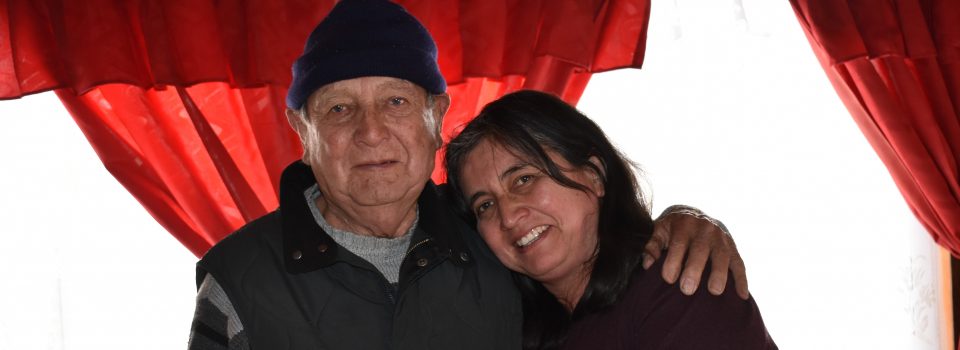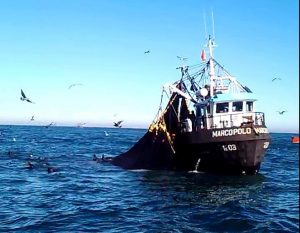Interview to Victoria Rubio Talcahuano’s Siparmar union’d President and AG Conapesca President
October 24th, 2022I am a fisherman’s daughter and very proud of having progressed thanks to my parent’s work.
An industrial civil engineer by profession and also an artisanal fisherwoman, mother of five children who are her greatest pride. She tells us that her eldest is an architect and has a master’s degree in sustainability, the only boy is finishing industrial civil engineering, her other daughter is in her fourth year of med school and the two girls, eleven and thirteen years old, are still at school and accompany her to all activities and meetings that her position as President implies.
During the interview she gets emotional because memories from her childhood come to her mind and she tells us “on stormy days I would ask about my dad whereabouts and he was always on the dock looking at the boat, which he built, I liked to see the sea and how my father worked.
The Marco Polo (their boat) is the pillar of our family, thanks to our boat and the enormous work of my parents, I was able to go to university and graduate, it has to do with the responsible effort of my parents who also managed what they generated with artisanal fishing
How has been your experience in fishing issues being a woman?
At first it was complicated, since it is not an area in which many women participate. The few who participated were women of great character. I did not have that kind of character at the beginning and it is not easy to enter a world where almost everyone is a man. , finally one earned a place as years go by and it is shown that one as a woman is capable and little by little I feel that they were valuing me, for my work.
I fully joined artisanal fishing world in 2003 because my dad asked me to accompany him to a meeting at GA (gremmial associatio)that we were at at that time, I really like numbers and I began to worry about statistical issues and everything whatever number I was in charge of checking it. I started getting into regulations issues and I was learning. At first I didn’t know much about fishing, I’m an industrial civil engineer, I hadn’t planned to work in fishing, but helping my father created the opportunity.
How do you evaluate your relationship with IFOP?
It is a good relationship, we need each other (fishing world and research), IFOP needs data and information that comes from the experience that we as fishermen can deliver. In 2004 I began to relate to them. I like the work that IFOP does. I think all the research they do is very useful. I also know that if we don’t give them the right information, generated reports won’t be good.So understanding that in the sector has It cost a lot, creating trust has been quite a feat, this is a joint effort that brings benefits to all of us. That is why the bonds of trust that we are forming are important, we deliver data and IFOP will use that information to be able to better understand what is happening with our resources. It is everyone’s responsibility to take care of our resources. My dad always had that vision of caring for the resource, what I like about the conversations with the IFOP workers is that I have learned a lot, there are many things that I did not know, both about biology and fishing issues and they the time and patience to explain.
What is your relationship with Safa project?
This project is born from us fishermen, by this I mean our Conapesca GA, which we saw as a good opportunity to promote research by applying for a project with funds from the Regional Government (GORE) and incidentally this also allows us to help productive activity Since artisanal fishermen generate income for the region, that is why this investment in research is so important.
The Safa project will study reproductive and recruitment bans in the fishing reserve area where Biobío region operates, it will improve knowledge about the common sardine and anchoveta resources, sartisanal fleet of the ince sampling is expanded. It is two years long.
Press related links:

